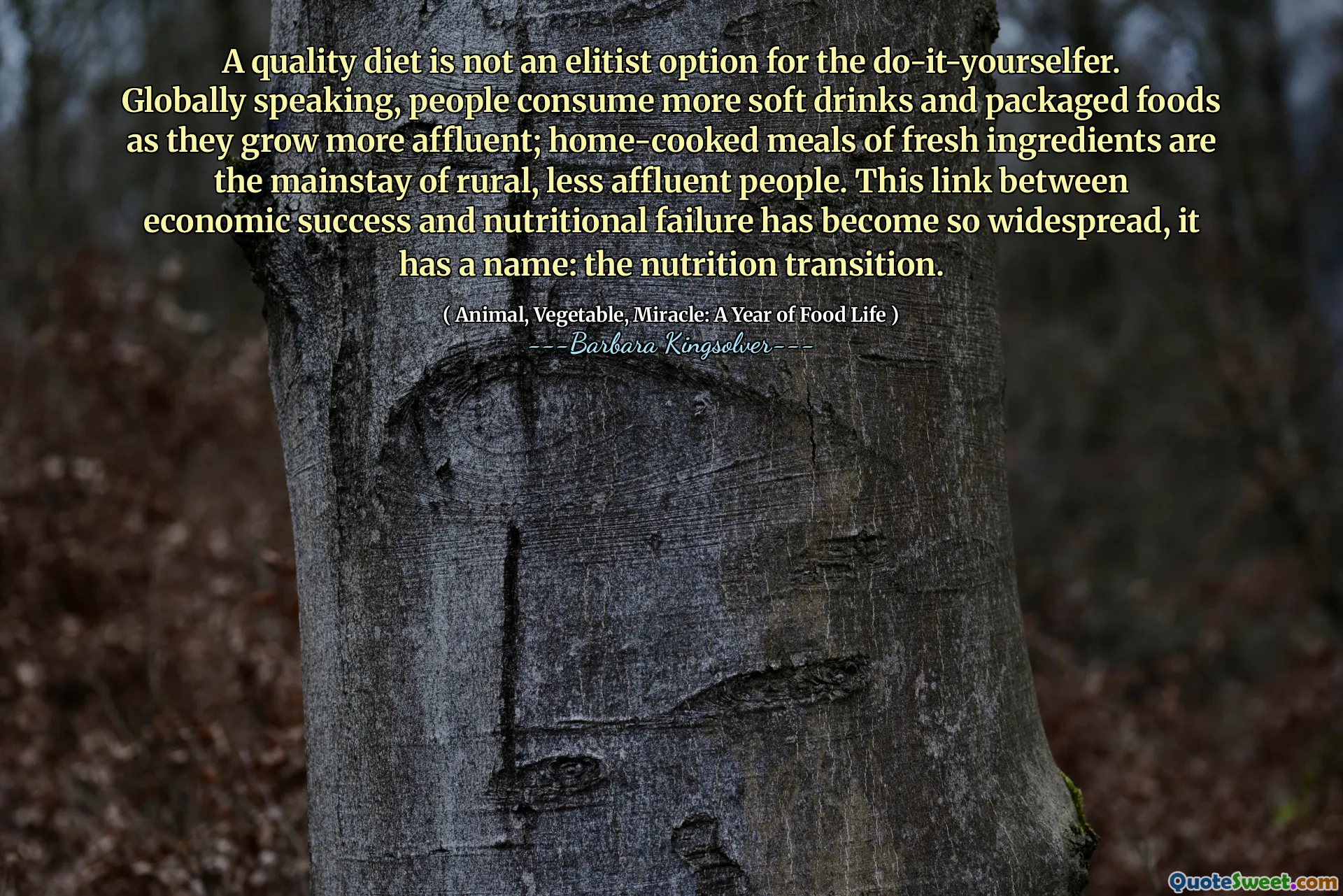
A quality diet is not an elitist option for the do-it-yourselfer. Globally speaking, people consume more soft drinks and packaged foods as they grow more affluent; home-cooked meals of fresh ingredients are the mainstay of rural, less affluent people. This link between economic success and nutritional failure has become so widespread, it has a name: the nutrition transition.
In her book "Animal, Vegetable, Miracle," Barbara Kingsolver discusses the paradox of diet quality in relation to economic status. As societies become wealthier, they tend to favor processed foods and sugary beverages over fresh, home-cooked meals. This shift often leads to poorer nutritional choices, particularly as affluent populations veer away from traditional diets rich in natural ingredients.
This phenomenon, known as the nutrition transition, highlights a troubling trend where higher income correlates with a decline in healthy eating habits. In contrast, those in less affluent areas still rely on home-cooked meals made from fresh ingredients, showcasing that a quality diet is more accessible to those who prioritize home cooking over convenience foods.











